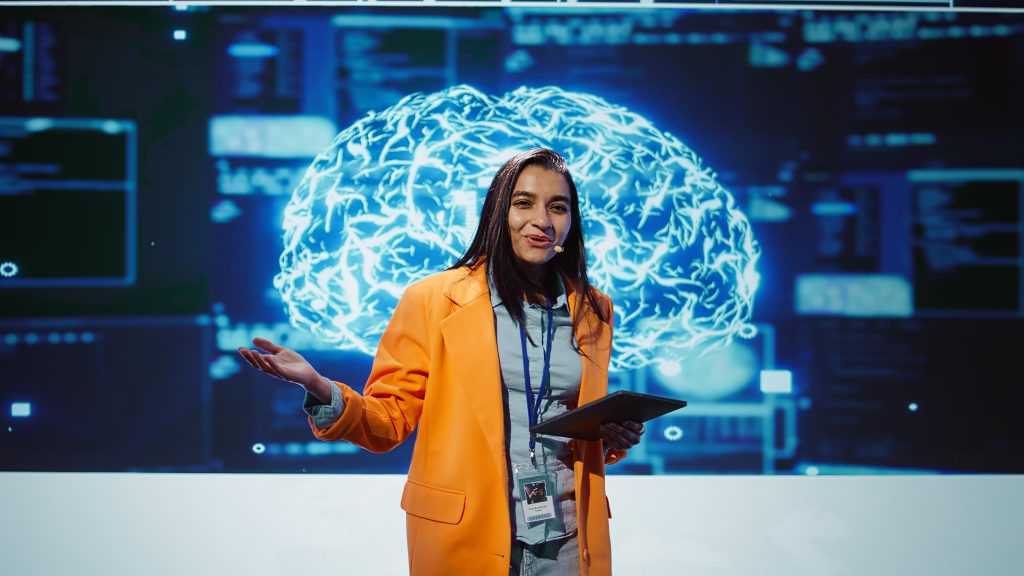How is the education industry leveraging AI to revolutionize personalized learning? As educational institutions and edtech companies strive to cater to diverse student needs and enhance learning outcomes, integrating AI offers a transformative approach to tailor education experiences. This blog explores three key innovations in personalized learning driven by AI, backed by industry data, creating more adaptive and effective educational environments.
1. Adaptive Learning Platforms
One of the most impactful innovations in personalized learning is the development of adaptive learning platforms powered by AI. These platforms customize educational content to match individual student needs, ensuring a more effective learning experience.
- Tailored Content Delivery: AI algorithms analyze student performance and learning styles to provide customized content. For example, platforms like DreamBox and Knewton adjust math problems or reading materials based on each student's proficiency level, ensuring they receive the right level of challenge and support. According to a report by HolonIQ, the global market for adaptive learning technologies is projected to reach $6.1 billion by 2025, highlighting the growing investment and adoption in this sector.
- Real-Time Feedback: AI-driven platforms offer immediate feedback, allowing students to understand their mistakes and learn from them promptly. A study by McKinsey indicates that real-time feedback can improve student performance by up to 20%, as it helps them correct errors and reinforces learning. Additionally, EdSurge reports that schools using adaptive learning platforms have seen a 30% increase in student engagement and a 25% improvement in test scores.
2. Intelligent Tutoring Systems
AI-powered intelligent tutoring systems (ITS) are transforming how students receive additional support and guidance outside the traditional classroom setting. These systems provide personalized tutoring, catering to each student's unique learning needs.
- AI Tutors: AI tutors simulate human tutoring by providing one-on-one assistance. For example, Carnegie Learning's MATHia uses AI to guide students through complex math problems, offering hints and explanations tailored to their understanding. According to a report by Research and Markets, the intelligent tutoring systems market is expected to grow at a CAGR of 13.5% from 2020 to 2027, driven by increasing demand for personalized learning solutions.
- Skill Assessment and Enhancement: ITS can assess students' skills and knowledge gaps, offering targeted exercises to strengthen weak areas. According to a report by EdTech, AI-driven tutoring systems can reduce the time needed to achieve mastery by up to 50%, as they focus on personalized skill enhancement. The World Economic Forum estimates that AI-based tutoring systems could potentially reduce educational inequality by providing high-quality education resources to underserved communities.

3. Personalized Learning Paths
AI facilitates the creation of personalized learning paths, allowing students to progress at their own pace and according to their interests and goals. This individualized approach fosters a more engaging and motivating learning experience.
- Customized Curricula: AI can design personalized curricula based on students' interests, strengths, and career aspirations. For instance, platforms like Coursera and edX use AI to recommend courses and learning paths that align with students' future goals. According to a study by the International Society for Technology in Education (ISTE), 77% of educators believe that AI can help create more personalized learning experiences.
- Predictive Analytics: AI leverages predictive analytics to identify students at risk of falling behind and provides proactive interventions. Research from the University of California highlights that predictive analytics can increase student retention rates by up to 15% by offering timely support and resources. Moreover, the use of predictive analytics in education is expected to grow significantly, with the market projected to reach $2.5 billion by 2024, as per Technavio.
Integrating AI for Enhanced Learning
As the education industry continues to embrace digital transformation, integrating AI into personalized learning presents a significant opportunity to enhance educational outcomes. By leveraging AI's strengths in content delivery, tutoring, and personalized learning paths, institutions can create more adaptive and effective learning environments.
Adopting AI-driven personalized learning not only improves student engagement and performance but also positions educational institutions to better meet the diverse needs of their students.
Are you ready to embrace AI innovations in personalized learning for a smarter educational experience? Explore these advancements and unlock new potential for your students' success.